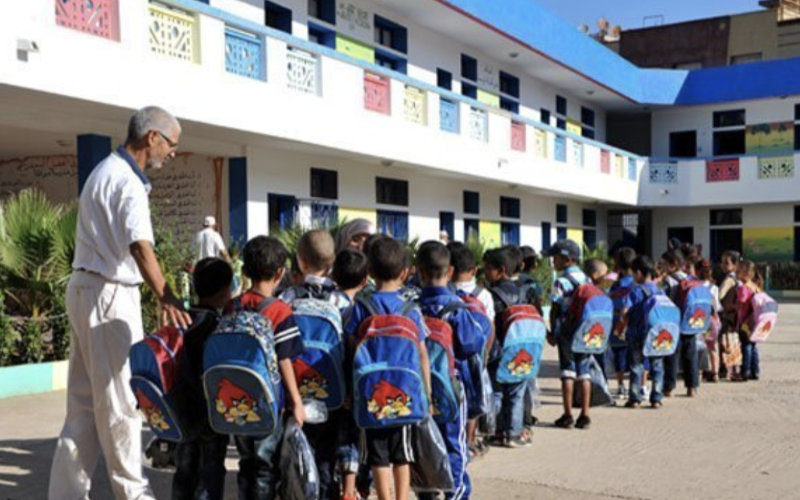Survey Reveals Corporal Punishment Persists in Moroccan Schools Despite Ban

A recent survey by the Higher Council for Education, Training and Scientific Research (CSEFRS) sheds light on the persistence of violent punishment practices in Moroccan school establishments.
This study indicates that despite an official ban, verbal and symbolic punishments, such as insults and harassment, are commonplace in primary schools. Then come the so-called educational punishments - repetition of writing and lowering of grades. More alarmingly, the report notes that around 28% of primary school students have suffered corporal punishment, including blows with an object or instrument, reports L’Économiste.
The application of sanctions at the secondary level reveals nuances compared to primary, but retains certain similarities. At the top of the list are warnings and notifications to parents, the most commonly used methods of punishment. Other educational sanctions, such as additional work, are also in force.
However, the finding is clear: corporal punishment has not disappeared, despite the assurances of the Ministry of National Education. According to the survey, 30.6% of secondary school students report having been hit with an object, while 17.3% mention having received slaps and/or blows. The study results also suggest that boys would be more often victims of these punishments and corporal punishments than girls.
Moroccans still in favor of corporal punishment at home
A study by the Afrobarometer network shed light a few months ago on a worrying trend: more than half (53%) of Moroccans are in favor of corporal punishment to discipline children. This trend is not limited to Morocco; the survey, conducted in 36 African countries, reveals that in countries such as Cameroon, Benin, Burkina Faso and Nigeria, 90% of citizens consider physical force a necessary tool to discipline the young. However, a reversal of the trend is perceptible in certain countries, notably Morocco, Malawi and Tanzania, where a majority of educated and high-income citizens reject this method of education.
Between 2016 and 2022, a 5% decrease was observed in the belief in the effectiveness of corporal punishment among citizens of 32 African countries, this decrease reaching 2% in Morocco. Urban residents are more likely to disapprove of this practice (40%) compared to rural residents (36%). People over the age of 55 are also more inclined to oppose this form of education. It should be noted that according to the World Health Organization, these punishments hinder the development of children and violate their rights. Although Morocco ratified the International Convention on the Rights of the Child in 1993, prohibiting and punishing any form of violence against children, the practice persists, despite Article 32 of the Moroccan Constitution which stipulates equal legal, social and moral protection for all children.
Related Articles
-

Illegal Beach Sand Mining Near Tangier Sparks Environmental and Economic Outcry
4 September 2025
-

Surveillance Footage Exposes Tourist Robbery Ring in Tangier Court Drama
4 September 2025
-

Rif Protest Icon’s Father Dies: Ahmed Zefzafi’s Passing Reignites Hirak Movement Debate
3 September 2025
-

Gulf Tourists and Moroccan Women Arrested in Marrakech Prostitution Sting
3 September 2025
-

Groom’s Secret Past Exposed: First Wife Crashes Moroccan Wedding, Halting Ceremony
3 September 2025